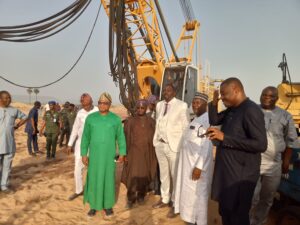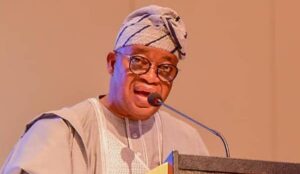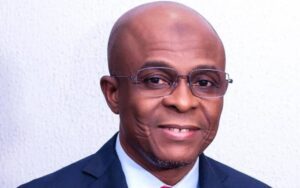
Restructure maritime sector — Hassan Bello tells FG
By Seun Ibiyemi
The immediate past Executive Secretary, Nigerian Shippers’ Council (NSC), Hassan Bello, has advised the Federal government to restructure the maritime Sector, this is coming as he called for CBN’s intervention.
Speaking during the reception organized to honour him by the National Association of Government Approved Freight Forwarders (NAGAFF), Bello noted that the government should not be burdened with owning ports but should be concerned about improving the port system and providing regulatory functions.
“We have been talking about restructuring but it should not be just for the economy. The maritime industry should be restructured. The port should not be owned by the Federal Government.
“The Federal Government should not be burdened with owning ports. It should of course improve the port system but under a regulatory authority. But for ownership of ports, the local government should do that. For example, the Apapa local government should own the Apapa port. Why can’t the local government in Lekki own the port? That is what is happening all over the world.
“We don’t need the Federal government to own the ports except for some certain security issues which the government could have oversight on and the regulations. I think it is time that other tiers of government own and operate the port,” he said.
Bello said the Apapa and Tin Can Island ports are already tired, therefore there is need to develop the Lekki deep seaport, which is projected for completion next year to take off the pressure from the two major seaports in Lagos.
He, however, cautioned the government to avoid repeating the mistakes of Apapa and Tin can in Lekki by prioritizing rail connectivity for cargo evacuation.
On the issue of automation, Bello urged the freight forwarding practitioners to embrace digitalization by carrying out their transactions online as he noted that most of the terminal operators have keyed into automation of their processes.
“The paperless transaction is happening now. So, freight forwarders must be digitalized. They don’t need to go to the port to carry out their transaction.
“Most terminals are doing between 60 percent, in fact, there is a terminal that is doing 100 percent. We push the agenda and they are cooperating with the Shippers’ Council to ensure that in no distant time all transactions in the ports are automated and digitalized. With Nigerian Ports Authority (NPA) and NIMASA joining in, I believe we will achieve that,” he said.
Bello added that in addition to automation there is also a need to integrate all systems to achieve a seamless and transparent port process.
“Once we have digitalization and the port community system, then, I think even the leakages in revenue will be addressed. There will be efficiency of our ports and Nigeria will be the preferred destination of port of cargo by shippers, not only in Nigeria but also in some landlocked countries,” he said.
Bello urged the government to focus more on the maritime industry as a viable alternative source of revenue in growing the economy, adding “there can never be a better place for diversification than the maritime sector.”
“The Central Bank of Nigeria (CBN) has intervened in agriculture, Nollywood and other sectors, so we are saying the CBN should please look at the maritime sector,” he said.



